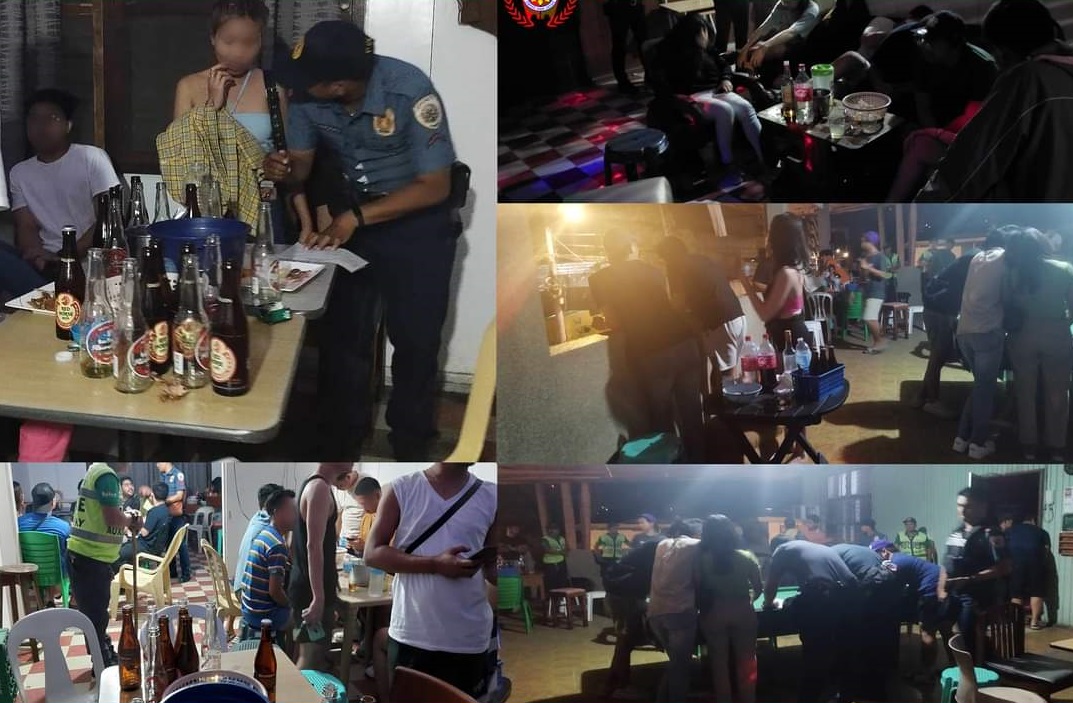- Government-issued ID now required under the new Liquor Code
THE AMENDED Liquor Code requires a government-issued ID from customers to prevent minors from accessing alcoholic beverages from establishments and stores.
The 20th City Council passed the “Comprehensive Liquor Code of Davao City” during the regular session on May 7.
Under Sec. 5 of the ordinance, establishments must ask for a valid ID if they doubt the age of the person trying to purchase the drink.
Councilor Luna Acosta, the committee on peace and public safety chairman, said the enhanced ordinance strictly implements the previous ordinances on liquor and sobriety, especially the access to alcohol by minors.
“There are some establishments as reports show that serve alcoholic beverages to minors, mukhang minor, binibigyan pa rin para makabenta, we want to avoid situations like that,” Acosta said during the iSpeak media forum on May 9.
The councilor cited the City Anti-Drug Abuse Council study showing that children as young as eight years old are already exposed to alcoholic beverages.
Alcoholic beverages refer to any drink containing alcohol as an active agent, including but not limited to, beers, liquors, spirits, vodkas, cocktails, wines, and locally distilled alcoholic drinks, such as but not limited to, coconut wine, or tuba, lambanog, basi, among others.
Persons who cannot show their ID cards and present IDs of questionable validity will be denied service.
Erring establishments may pay a P5,000 fine, imprisonment of up to one year, and revocation of business permit.
Those who acquire or buy alcoholic beverages on behalf of a minor, or compel a minor to purchase and consume such will be penalized amounting to a P5,000 fine, and imprisonment of up to one year.
On top of the fine, violators must attend alcohol cessation counseling in accredited clinics and district health centers in the city.
The practice of the tagay system or sharing of glasses with minors, regardless of their relationship to the person with them in the establishment is considered unlawful.
In the case of minors, he/she shall be immediately referred to the City Social Welfare and Development Office (CSWDO) subject to his/her rescue and will be dealt with accordingly.
The ordinance enhances existing ordinances relating to liquor and sobriety, repealing for this purpose Ordinance no. 004-13, series of 2013, otherwise known as the “Liquor Ban Ordinance” and Ordinance no. 0410-18, series of 2018, otherwise known as “The sobriety Ordinance of Davao City.”
The liquor ban in establishments is the same as the Liquor Ban ordinance beginning 1:00 am until 8:00 am.
The consumption of liquor within commercial establishments is prohibited beginning 1:00 am until 2 p.m. The last call or last order of liquor is only until midnight, and these shall be consumed by 1 a.m.
Meanwhile, liquor establishments within 50-meter radius of any schools, health facilities, places of worship, facilities frequented by minors, and public buildings, shall not be allowed to serve other alcoholic beverages within their premises between 1 a.m. to 6 p.m.
Section 4 of the ordinance requires every liquor establishment to put up a prescribed sign bearing “NO LIQUOR TO MINORS,” “LIQUOR LAST CALL BY 12 A.M” and “NO LIQUOR BY 1:00 A.M.” which is not less than three inches tall and placed in conspicuous areas within the establishment.
The “NO LIQUOR” signs at least eight by eighteen (8×18) inches in size and the International “NO ALCOHOL” symbol occupy 60% of said signage while the remaining 40% shall show the pertinent information/precautionary statement, as follows: “STRICTLY NO LIQUOR” Per Ordinance No. Violators are fined up to, and report to.
The signage “SALE AND/OR DISTRIBUTION OF LIQUOR AND OTHER ALCOHOLIC BEVERAGES TO MINORS IS UNLAWFUL” is also required in establishments.

